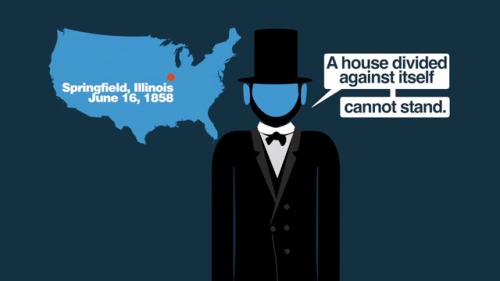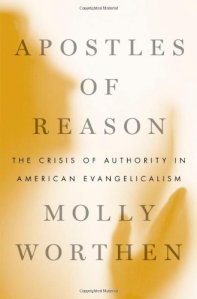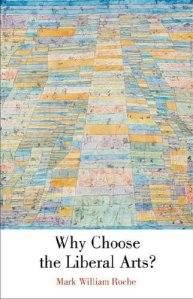[As I shared last time, I am on leave until the fall and taking a temporary break from crafting new essays on faith and American history. In the meantime, I thought I would re-post essays that have either been comparatively popular or personally meaningful. (Those two categories often don’t overlap, by the way.) I thought I would start with this piece on one of the ways that C. S. Lewis has taught me about “the task of the modern educator.” Academic historians are great at cutting down jungles, but we aren’t trained to irrigate deserts, and our students are the poorer for it. I’ve spent a good part of the last two decades trying to figure out how to bring “the Fountain of living water” into the history classroom. It’s an ongoing project, but here are my thoughts as of a few years ago.]
C. S. Lewis was one of the greatest Christian apologists of the twentieth century, and I have long appreciated many of his better known popular works. As a young adult, I read and re-read classics such as Mere Christianity, The Screwtape Letters, The Great Divorce, Miracles, and The Problem of Pain. Then when our children came along and they were old enough, my wife recommended that I read The Chronicles of Narnia to them. Soon Peter and Susan and Edmund and Lucy—not to mention a host of centaurs, dwarves, giants and dufflepuds—were part of our regular bedtime routine. Count me a fan.
Although I never expected it when I first began to read Lewis, he has also helped me immensely in thinking about my calling as a historian and a teacher. I was reminded of this recently in re-reading Lewis’s The Abolition of Man, a book that I was informally discussing with a small group of Wheaton undergraduates. If you don’t know the book, I highly recommend it, particularly if you are at all interested in the role that education plays in both affecting and reflecting popular values. It’s a short book (most editions come in at under one hundred pages), but it’s also a difficult book, the kind that you have to read slowly, and more than once, to get the maximum benefit. But isn’t that true of most books that change us, rather than merely entertain us?
 Summarizing broadly, The Abolition of Man is a meditation on the ways that education shapes our sense of morality. Above all, it is a powerful indictment of relativism. Although Lewis was writing about seventy years ago, his words are timely today. Indeed, his description of WWII-era England neatly captures the trends that define public education in the contemporary United States. With little sense of irony, we deny the existence of absolute moral values and then are appalled at the epidemic of drug abuse, violence, and sexual promiscuity that plagues our schools. As Lewis put it, “such is the tragi-comedy of our situation” that we “clamour for those very qualities we are rendering impossible. . . . We laugh at honour and are shocked to find traitors in our midst. We castrate, and bid the geldings be fruitful.”
Summarizing broadly, The Abolition of Man is a meditation on the ways that education shapes our sense of morality. Above all, it is a powerful indictment of relativism. Although Lewis was writing about seventy years ago, his words are timely today. Indeed, his description of WWII-era England neatly captures the trends that define public education in the contemporary United States. With little sense of irony, we deny the existence of absolute moral values and then are appalled at the epidemic of drug abuse, violence, and sexual promiscuity that plagues our schools. As Lewis put it, “such is the tragi-comedy of our situation” that we “clamour for those very qualities we are rendering impossible. . . . We laugh at honour and are shocked to find traitors in our midst. We castrate, and bid the geldings be fruitful.”
The Abolition of Man is a jeremiad, an extended warning. Lewis’s primary concern is to call attention to the disastrous long-term consequences of an educational philosophy that denigrates moral truth. Necessarily, it is mostly critical. Yet embedded in Lewis’s negative assessment are glimpses of a very different approach to education, glimpses that offer positive ideals to strive toward. Let me share a favorite example of what I have in mind.
It comes in the midst of chapter one, provocatively entitled “Men Without Chests.” Lewis has just finished discussing a passage from a high-school literature textbook that undermines the idea of objective moral values. The unsuspecting students who read the book will think that they are only learning grammar. In reality, however, they are also learning philosophy, for the implicit message of the passage is that “all values are subjective and trivial.” Giving the authors of the textbook the benefit of the doubt, Lewis concedes that their intentions might be honorable. Even so, they are sadly misguided, for they have
misunderstood the pressing educational need of the moment. They see the world around them swayed by emotional propaganda—they have learned from tradition that youth is sentimental—and they conclude that the best thing they can do is to fortify the minds of young people against emotion. My own experience as a teacher tells an opposite tale. For every one pupil who needs to be guarded from a weak excess of sensibility there are three who need to be awakened from the slumber of cold vulgarity. The task of the modern educator is not to cut down jungles but to irrigate deserts.
I’ve found these two phrases—“cutting down jungles” and “irrigating deserts”—to be wonderfully useful metaphors. They have helped me to think more perceptively about the conventions of academic history, and they have enabled me to see more clearly how those conventions have influenced what I bring to the classroom. “Cutting down jungles,” as I understand that phrase, means helping students with passionate convictions to evaluate critically their world views, to examine what lies beneath the personal beliefs they profess. “Irrigating deserts,” conversely, involves nurturing in apathetic or cynical students the hope that there is meaning and purpose in human existence.
We academic historians are great at cutting down jungles. Read almost any reflection on the historian’s vocation by an academic historian and you will come across statements like the following: “Basically history is destructive.” “The practice of history is not comforting” but “profoundly subversive.” “Honest history” will be “unsettling” and “jarring.” It pushes people “to stand outside their comfortable . . . assumptions and to learn unpleasant lessons.” Our “proper role” as historians is to “challenge preconceptions and assumptions,” “critique and reform unreflective modes of civic discourse about the past,” criticize “American cultural and societal failures,” “challeng[e] received wisdom,” “explode national myths.” Yep, we love to wield our machetes.
But we’re a pretty sorry lot when it comes to irrigating deserts. Academic history is too often “all head and no heart,” in the words of distinguished historian Gordon Wood. Taking Lewis’s counsel seriously demands that we correct that imbalance. Historians need to recover a role that not only criticizes but encourages, that not only explodes myths, but also serves as the custodian of forgotten dreams for a better world. Yes, we must challenge the self-serving assumptions of the culture, but we must also boldly identify, in the words of David Harlan, “what is good” in our past, “what is worth insisting on and saving.” Figuring out how to do that is a challenge, but it is a goal worthy of our best efforts.











